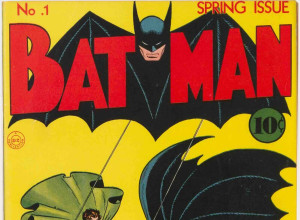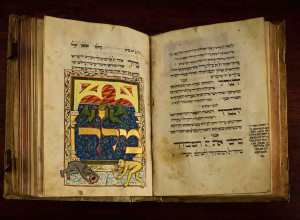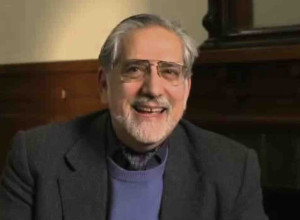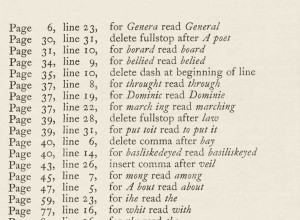James S. Copley Library
Beginning in April 2010, Sotheby’s New York will have the privilege of
offering the James S. Copley Library, an astonishing survey in original
manuscripts of American history and worldwide literary, artistic and
scientific achievement. The core of the collection is its remarkable
range of handwritten letters, documents, and other manuscripts which
trace this history of America from the earliest incursions of Jesuit
missionaries into California through the archive of letters sent by General Eisenhower to his wife
from the battlefields of Europe. The depth and breadth of the library
is astounding, reflecting the interest and passions of an inspired collector and newspaper publisher along with a
dedicated curator who together sought the finest works available.
Assembled primarily during the 1960s and 70s, a ‘Golden Age’ for
manuscript collecting, the Library numbers approximately 2,000
manuscripts, books, pamphlets, broadsides and maps and is valued at
more than $15 million.Consigned by The Copley Press, Inc., the Library will be sold in a
series of eight auctions that will be held over the course of a year,
beginning in April.
“The Copley Library is of a scale that can likely never again be achieved by a private collector,” said David Redden, Vice Chairman of Sotheby’s. “While institutional in scope and significance, the manuscripts and books in the Library clearly reflect the discernment of a passionate collector and equally passionate patriot. The birth, survival, and expansion of the United States is brilliantly documented in the writings of the men and women who
founded and protected our nation. It would be wrong to think of the Copley Library as exclusively American, however. As a reader and a newspaperman, Mr. Copley had wide and eclectic interests, which also provided themes for the collection. Letters and manuscripts from authors, scientists, and musicians as diverse as Charlotte Brontë, Albert Einstein, and Tchaikovsky also found a place in the Library.”
The Collector
James S. Copley was born in 1917 and adopted by Col. and Mrs. Ira C. Copley after his parents succumbed to the flu during the epidemic of 1918. Col. Copley bought The San Diego Union and Evening Tribune in 1928 and, following his death in 1947, Jim became the CEO of the corporation publishing a large group of newspapers, including the San Diego Union-Tribune. He remained editor of that paper and CEO of Copley Press until his death in 1973. He was the recipient of numerous industry awards and he and his wife, Helen K.
Copley, were notable philanthropists to the San Diego area; endowing the Copley Auditorium at the San Diego Museum of Art, the Copley Library at the University of San Diego, Copley Symphony Hall, the Copley Center at the Scripps Clinic and Research Foundation and a YMCA facility, among others.
After several years of collecting on a small scale, Mr. Copley embarked on journey to assemble a substantial collection and enlisted the help of a curator, Richard Reilly. For the remainder of Mr. Copley’s life and for many years following, Reilly, together with Mrs. Copley, worked to build a collection that keenly reflected Mr. Copley’s interests, chief among which was his own national heritage and the patriotic principles embraced by the family’s newspapers. Reilly later recalled that Mr. Copley wanted, “Not only documents relating to important events in American history, but those portraying some sentiment or giving some feeling for people who made the history. He wanted every item to represent dramatic, humorous, romantic, passionate, or tragic events in the lives of real people unconsciously caught in the weave of American history. ”
The Collection
Americana
Mr. Copley was appointed to the Bicentennial Media Committee by President Nixon in 1969 and, not surprisingly, the greatest strength of his collection are the manuscripts, broadsides, pamphlets and other publications relating to the struggle of the United States to gain its independence and establish its own Constitution. Virtually every Revolutionary patriot is represented, from Thomas Paine to Patrick Henry; while the holdings of George Washington, Thomas Jefferson and John Adams are particularly remarkable for their number and historical significance. Less expected is the emphasis that the collection places on the British
perspective of the American Revolution with King George III prominently represented, as well as the Howe Brothers, General Burgoyne, Edmund Burke and most significant, the vast archive of papers belonging to Henry Strachey. Perhaps closer to Mr. Copley’s heart is a substantial collection relating to the settlement of California. While a new nation was in its nascent stages on the east coast, there was significant exploration and development on the west coast and the Library features letters and documents relating to many of the key
players: Father Junipero Serra, Juan Pantoja y Arriaga and John Augustus Sutter. Among the most significant Americana highlights to be offered include:
Always a voracious reader, Mr. Copley’s manuscript collecting made him realize he could also obtain first editions as well as original letters of his favorite authors - principal among them is his fellow California newspaper man, Mark Twain. The Mark Twain Collection is rich in letters, both to Twain’s publishers and family and friends. A number of manuscripts relate to some of his more famous publications and the collection also includes an unpublished autobiographical manuscript entitled A Family Sketch. Other literary and artistic
luminaries featured in the collection include Emily Dickinson, F. Scott Fitzgerald, Charles Dickens, Sir Arthur Conan Doyle, T. S. Eliot, Charlotte Brontë, Willa Cather, James Joyce, George Gershwin, Julia Ward Howe, and Peter Ilich Tchaikovsky, among many others. Achievements in science and the minds behind them also fascinated Mr. Copley, and among the offerings from the Library is a significant group of letters and two speeches by Albert Einstein. Other noteworthy names acquired by Mr. Copley include Sir Isaac Newton, Marie
Curie, Louis Pasteur, Charles Darwin, Thomas Edison and Alexander Graham Bell.
Highlights to be offered include:
“In our years of handling private collections, this is a rare opportunity for existing and new collectors to find such a comprehensive treasure trove of American historical documents, books, manuscripts and fine art, including autographs of all the signers of the Declaration of Independence, manuscripts from Presidents Washington to Lincoln and beyond, examples of prolific Americans such as Mark Twain, Albert Einstein and George Gershwin as well as so many other iconic works. It is a veritable Who’s Who from three centuries of America.”
AUCTION SCHEDULE FOR THE JAMES S. COPLEY LIBRARY
April 14, 2010
“The Copley Library is of a scale that can likely never again be achieved by a private collector,” said David Redden, Vice Chairman of Sotheby’s. “While institutional in scope and significance, the manuscripts and books in the Library clearly reflect the discernment of a passionate collector and equally passionate patriot. The birth, survival, and expansion of the United States is brilliantly documented in the writings of the men and women who
founded and protected our nation. It would be wrong to think of the Copley Library as exclusively American, however. As a reader and a newspaperman, Mr. Copley had wide and eclectic interests, which also provided themes for the collection. Letters and manuscripts from authors, scientists, and musicians as diverse as Charlotte Brontë, Albert Einstein, and Tchaikovsky also found a place in the Library.”
The Collector
James S. Copley was born in 1917 and adopted by Col. and Mrs. Ira C. Copley after his parents succumbed to the flu during the epidemic of 1918. Col. Copley bought The San Diego Union and Evening Tribune in 1928 and, following his death in 1947, Jim became the CEO of the corporation publishing a large group of newspapers, including the San Diego Union-Tribune. He remained editor of that paper and CEO of Copley Press until his death in 1973. He was the recipient of numerous industry awards and he and his wife, Helen K.
Copley, were notable philanthropists to the San Diego area; endowing the Copley Auditorium at the San Diego Museum of Art, the Copley Library at the University of San Diego, Copley Symphony Hall, the Copley Center at the Scripps Clinic and Research Foundation and a YMCA facility, among others.
After several years of collecting on a small scale, Mr. Copley embarked on journey to assemble a substantial collection and enlisted the help of a curator, Richard Reilly. For the remainder of Mr. Copley’s life and for many years following, Reilly, together with Mrs. Copley, worked to build a collection that keenly reflected Mr. Copley’s interests, chief among which was his own national heritage and the patriotic principles embraced by the family’s newspapers. Reilly later recalled that Mr. Copley wanted, “Not only documents relating to important events in American history, but those portraying some sentiment or giving some feeling for people who made the history. He wanted every item to represent dramatic, humorous, romantic, passionate, or tragic events in the lives of real people unconsciously caught in the weave of American history. ”
The Collection
Americana
Mr. Copley was appointed to the Bicentennial Media Committee by President Nixon in 1969 and, not surprisingly, the greatest strength of his collection are the manuscripts, broadsides, pamphlets and other publications relating to the struggle of the United States to gain its independence and establish its own Constitution. Virtually every Revolutionary patriot is represented, from Thomas Paine to Patrick Henry; while the holdings of George Washington, Thomas Jefferson and John Adams are particularly remarkable for their number and historical significance. Less expected is the emphasis that the collection places on the British
perspective of the American Revolution with King George III prominently represented, as well as the Howe Brothers, General Burgoyne, Edmund Burke and most significant, the vast archive of papers belonging to Henry Strachey. Perhaps closer to Mr. Copley’s heart is a substantial collection relating to the settlement of California. While a new nation was in its nascent stages on the east coast, there was significant exploration and development on the west coast and the Library features letters and documents relating to many of the key
players: Father Junipero Serra, Juan Pantoja y Arriaga and John Augustus Sutter. Among the most significant Americana highlights to be offered include:
- One of a few surviving broadside Declarations of Independence printed in the weeks after July 4, 1776(est. $600/800,000, pictured on page 1)
- An
official letter from 12 July 1776 from the Marine Committee of Congress
to John Ashmead signed by Button Gwinnett, the most prized of all the
signers of the Declaration of Independence (est. $500/700,000)
- A
significant collection of papers and correspondence belonging to Henry
Strachey, Secretary to the British Commission for Restoring Peace in
America (est. $700,000/1.2 million)
- Personal
notebooks belonging to John Lansing, Jr., kept while acting as a
delegate for New York to the Constitutional Convention of 1787 (est.
$600/800,000)
- Abraham Lincoln instructing General McClellan to either attack Richmond or come back to defend Washington (est. $500/700,000)
- An archive of letters sent by General Eisenhower to his wife from the battlefields of Europe (est. $400/600,000)
- A listing by Father Junipero Serra on March 1, 1777 of all of the missions he founded in Alta California (est. $250/350,000)
- One
of the earliest surviving maps of the Port of San Diego, surveyed and
drawn by Juan Pantoja u Arriaga in September 1782 (est. $300/500,000)
Always a voracious reader, Mr. Copley’s manuscript collecting made him realize he could also obtain first editions as well as original letters of his favorite authors - principal among them is his fellow California newspaper man, Mark Twain. The Mark Twain Collection is rich in letters, both to Twain’s publishers and family and friends. A number of manuscripts relate to some of his more famous publications and the collection also includes an unpublished autobiographical manuscript entitled A Family Sketch. Other literary and artistic
luminaries featured in the collection include Emily Dickinson, F. Scott Fitzgerald, Charles Dickens, Sir Arthur Conan Doyle, T. S. Eliot, Charlotte Brontë, Willa Cather, James Joyce, George Gershwin, Julia Ward Howe, and Peter Ilich Tchaikovsky, among many others. Achievements in science and the minds behind them also fascinated Mr. Copley, and among the offerings from the Library is a significant group of letters and two speeches by Albert Einstein. Other noteworthy names acquired by Mr. Copley include Sir Isaac Newton, Marie
Curie, Louis Pasteur, Charles Darwin, Thomas Edison and Alexander Graham Bell.
Highlights to be offered include:
- Walt Whitman writing his mother in 1864 about Grant, Lee and the Battle of the Wilderness (est. $18/25,000)
- Samuel
Langhorne Clemens’ unpublished manuscript, “A Family Sketch”; his most
intimate and introspective memoir of his family and his own boyhood
days (est. $120/160,000)
- A chapter from John James
Audubon’s “Ornithological biography” entitled ‘The Ohio’ in which he
recalls vividly his voyage down the Ohio River from Pennsylvania to
Kentucky (est. $10/15,000)
- Albert Einstein’s autograph speech delivered to the California Institute Associates on 25 January 1932 (est. $40/60,000)
- Charlotte
Brontë writing to W.S. Williams, her agent or publisher, on 18 October
1848 and expressing a pessimistic outlook on the study of human
motivations (est. $35/50,000)
- Pages from the first
chapter of Louisa May Alcott’s “Jack and Jill”, most likely written
during the summer of 1880 (est. $5/7,000)
- Twenty-six bars of George Gershwin’s song, “Clap Yo’ Hands”, dated November 1926 (est. $8/12,000)
- Emily
Dickinson writing in the spring of 1871 to Mrs. Henry Hills, a friend
and neighbor from New York, on the subject of love and charity (est.
$35/50,000)
“In our years of handling private collections, this is a rare opportunity for existing and new collectors to find such a comprehensive treasure trove of American historical documents, books, manuscripts and fine art, including autographs of all the signers of the Declaration of Independence, manuscripts from Presidents Washington to Lincoln and beyond, examples of prolific Americans such as Mark Twain, Albert Einstein and George Gershwin as well as so many other iconic works. It is a veritable Who’s Who from three centuries of America.”
AUCTION SCHEDULE FOR THE JAMES S. COPLEY LIBRARY
April 14, 2010
- Magnificent American Historical Documents from the James S. Copley Library Part I
- A July 1776 Broadside Printing of the Declaration of Independence
- A July 1776 Congressional Document Signed by Button Gwinnett
- Arts & Sciences, including the Mark Twain Collection
- Magnificent American Historical Documents from the James S. Copley Library Part II
- The Henry Strachey Papers relating to the American Revolution and the Preliminary Treaty of Paris
- Magnificent American Historical Documents from the James S. Copley Library Part III
- Delegate John Lansing’s Notes from the United States Constitutional Convention, 1787















